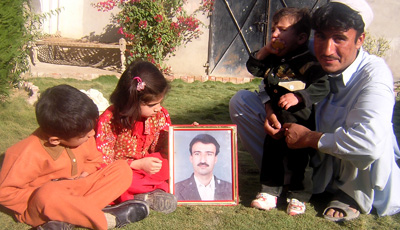In case there was any doubt about the stance of Pakistani authorities on the murder of journalists, UNESCO’s 28th biennial session offered an instructive insight. In addition to discussing the U.N. Draft Plan of Action on the Safety of Journalists and the Issue of Impunity during the meeting, held in Paris in March, member states were to report on judicial inquiries into the killings of journalists from 2006 to 2009. Pakistan was among 17 countries that did not respond to the request. It was also one of three countries that refused to discuss the UNESCO draft, intended to take legislative measures to combat attacks on the press. This was a reflection of our sad state of affairs.
• CPJ’s 2012
Impunity Index
Humaira Zia Mufti, Pakistan’s deputy permanent representative to UNESCO and the country’s envoy to the meeting, said the Ministry of Information and Broadcasting had been asked in August 2011 to provide inquiry details on journalist murder cases. Because it was not done by the ministry, it cannot be produced, she said.
This may be surprising for journalists elsewhere, but it is a routine occurrence for their Pakistani counterparts, who have not seen a single colleague’s murder solved, with the exception of Daniel Pearl, a Wall Street Journal reporter killed in Karachi in 2002. Pakistan’s decision to bring Pearl’s killers to justice came under intense U.S. government pressure. The decision sent a strong message to all hostile elements operating in the country: don’t mess with foreign journalists, especially those from Western countries. And it worked. No foreign journalist has been murdered in Pakistan since Pearl’s death.
But Pakistani journalists stand in violent contrast. They are killed in a pervasive culture of impunity. Authorities are sending another strong message to their killers: silence all dissenting voices.
UNESCO sought reports on the murders of 12 Pakistani journalists between 2006 and 2009. During this time, Pakistani authorities only held one judicial inquiry — into the case of Hayatullah Khan, murdered in June 2006. The judge who led the investigation submitted a report to Pakistani authorities on August 2006. But the report was shoved under the carpet, and repeated requests by the country’s journalism community to make it public have fallen on deaf ears.
After Khan’s killing, authorities have held one more judicial inquiry, into the May 2011 murder of Saleem Shahzad. The two cases are in direct contrast with those of all other journalists slain in Pakistan since 1992. As many as 58 journalists have been killed since then, including 42 murdered in direct retaliation for their work, according to CPJ research.
But even in Khan and Shahzad’s cases, there were no criminal investigations. The judicial commission set up to investigate Shahzad’s killing noted with regret that police had failed to properly pursue the case and examine officials in the powerful Inter-Services Intelligence. (The ISI is widely suspected of being behind his killing.)
In Khan’s case, an official with direct access to the guarded judicial report said military officials summoned for examination never appeared. He said the report stressed the need for a thorough criminal investigation. “An inquiry cannot be a substitute for a proper investigation and trial under the law, particularly when the area is governed by special constitutional provisions,” the official read from Khan’s report.
The two cases have clear similarities. Khan was a tribal journalist living in an area that borders Afghanistan. Shahzad frequented the area on several reporting trips. In both cases, Taliban and military or intelligence agencies were suspected of involvement, providing the government with alleged justification; in discussions with journalists, officials claimed the murky world of the military made it difficult to properly ascertain the cases. This is not true.
Wali Khan Babar‘s case is a perfect example to rebuff their justifications. A reporter with Geo TV, Babar was murdered in January 2011 in Karachi, where ethnic violence is rife. The police made initial headway. Five suspects were arrested, and the Muttahida Qaumi Movement, or MQM, a key ally of Pakistani President Asif Zardari’s government, was accused of masterminding the crime, according to the Joint Interrogation Team. But there has been no follow-up. A senior officer in Karachi’s police told me in confidence that authorities are waiting in vain for a nod from Zardari to move ahead.
The federal government seems more concerned with keeping its coalition intact than solving Babar’s murder. A CPJ delegation met with Zardari on May 3, 2011, World Press Freedom Day. During the meeting, the president said his government would pursue justice for slain journalists and reverse the country’s rising impunity record. If CPJ and other press freedom organization are monitoring this, they must have concluded that the presidential pledge has not moved beyond rhetoric. Instead, Pakistan has become a country where the corrupt enjoy immunity and killers enjoy impunity.
